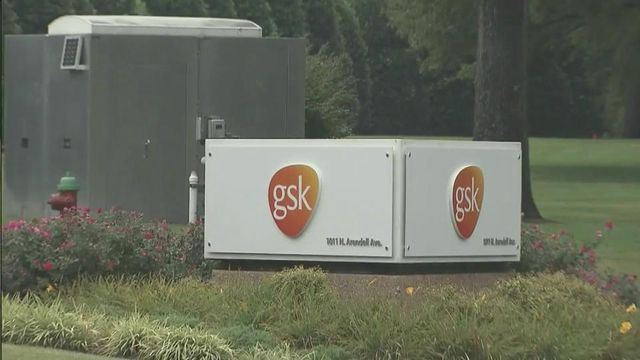GSK shuts down part of Zebulon site after bacteria found in cooling towers
GlaxoSmithKline temporarily shut down its manufacturing site in Zebulon on Tuesday after the bacteria that causes Legionnaires' disease was found in the cooling towers, a company spokesperson said.
Posted — UpdatedA routine test found the bacteria legionella, which can cause Legionnaires' disease, a type of pneumonia, or a milder infection called legionellosis.
A spokesman said the entire campus, which has several buildings, was not shut down - only the main site. The bacteria was not found in any of the buildings, and the cooling towers do not directly put air into the buildings.
Employees will not return to work until the towers are cleaned and retested.
"We are taking every precaution to ensure the health and safety of our employees, as well as the safety and integrity of our products," spokeswoman Jenni Brewer Ligday said in an email.
The North Carolina Division of Public Health said no one has reported any symptoms or illness associated with the shutdown.
GSK employs several thousand people across the Triangle and uses the Zebulon plant to manufacture a variety of products. Among the products made in Zebulon are Advair, Breo and Ellipta. However, manufacturing of these drugs was not affected, the company said.
Dr. David Weber, an infectious disease specialist with UNC Hospitals, said he was not surprised to learn that bacteria was found in the company's cooling towers.
He said legionella lives in various water supplies, and the sludge and slime often found at the bottom of commercial cooling towers help to promote the bacteria's growth.
Weber said GSK's decision to keep employees away was good, but there's no standard for a safe or dangerous amount of the bacteria.
"We don't know enough to say if there's X amount of legionella in the water, then this is a risk to people," he said. "So, lots is bad, none is good. In between is hard to give you a direct estimate."
• Credits
Copyright 2024 by Capitol Broadcasting Company. All rights reserved. This material may not be published, broadcast, rewritten or redistributed.





